
| December 2020
Early Learning and Elementary Snapshot
Helping Your Child Manage Emotions

|
|
|
|
|
Kids experience complex feelings just like adults. They get frustrated, excited, sad, jealous, worried and angry. However, young kids usually don’t have the maturity or skills to talk about how they are feeling. Instead they communicate their feelings through facial expressions, through their body, their behaviour and play. Sometimes they may act out their feelings in physical, inappropriate or problematic ways.
Being a parent means you have important role to play in helping kids understand their feelings and behaviours. Children need to be shown how to manage their feelings in positive and constructive ways; this is referred to as emotional self-regulation.
|
|
|
What is Emotional Self-Regulation?
Self-regulation is the ability to manage emotions and behavior according to the demands of the situation. It includes being able to resist highly emotional reactions to upsetting situations, to calm down when upset, to adjust to unexpected changes, and to handle frustration without an outburst.
|
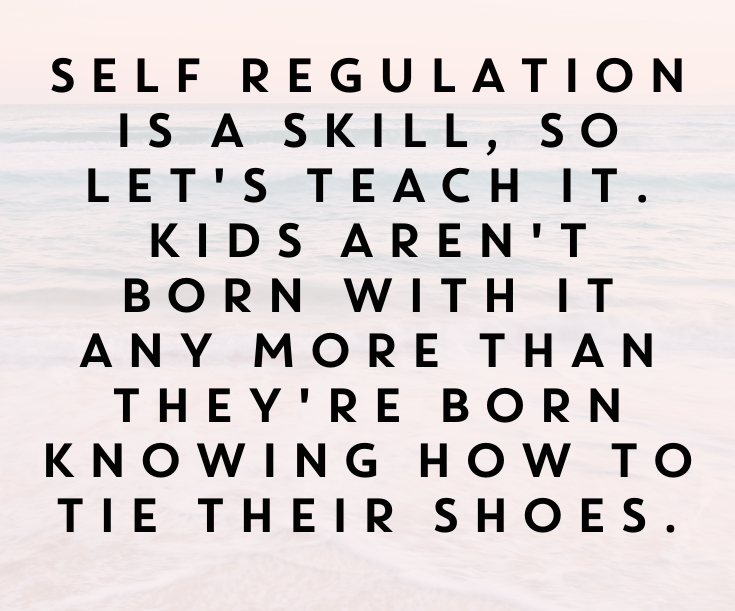 |
|
|
Self-regulation is influenced by outside factors like the environment and interactions with others and by internal factors such as temperament. The particular temperament children are born with impacts how easily they are able to regulate themselves. Children also have differences in how strongly they experience and express their feelings.
|
|
|

|
Challenges with self-regulation show up in different ways depending on the child. Some kids have an instantaneous response— they have a huge, strong reaction and there‘s no lead-in or warning.
For other kids, distress seems to build up and they can only take it for so long. Eventually it leads to some sort of behavioral outburst.
The key for both kinds of kids is to learn to handle those strong reactions and find ways to express their emotions that are more effective and less disruptive.
|
|
|
Different situations can affect your child‘s ability to self-regulate. For example, tiredness, illness and changes to your child‘s routine can all affect their ability to regulate their reactions and behaviour. Also, some children have great self-regulation at school but find it hard at home. Other children struggle in busy, noisy places like shopping centres.
Although these struggles with self-regulation are normal, it‘s a good idea to speak with a professional if you‘re concerned about your child‘s ability to self regulate. Children with ADHD or anxiety may find it particularly challenging to manage their emotions, and need more help to develop emotional regulation skills.
|
|
|
|
|
This short insight video discusses one useful practice you can use to regulate your emotions.
|
|
|
|
|
Your kids will experience a wide range of emotions each day. They may feel elated one moment followed by disappointment in the next moment. The key is not to avoid situations that are difficult for kids to handle, but to coach kids through them and model the behavior you want to see— until they can handle these challenges on their own. This is referred to as co-regulation.
|
|
|
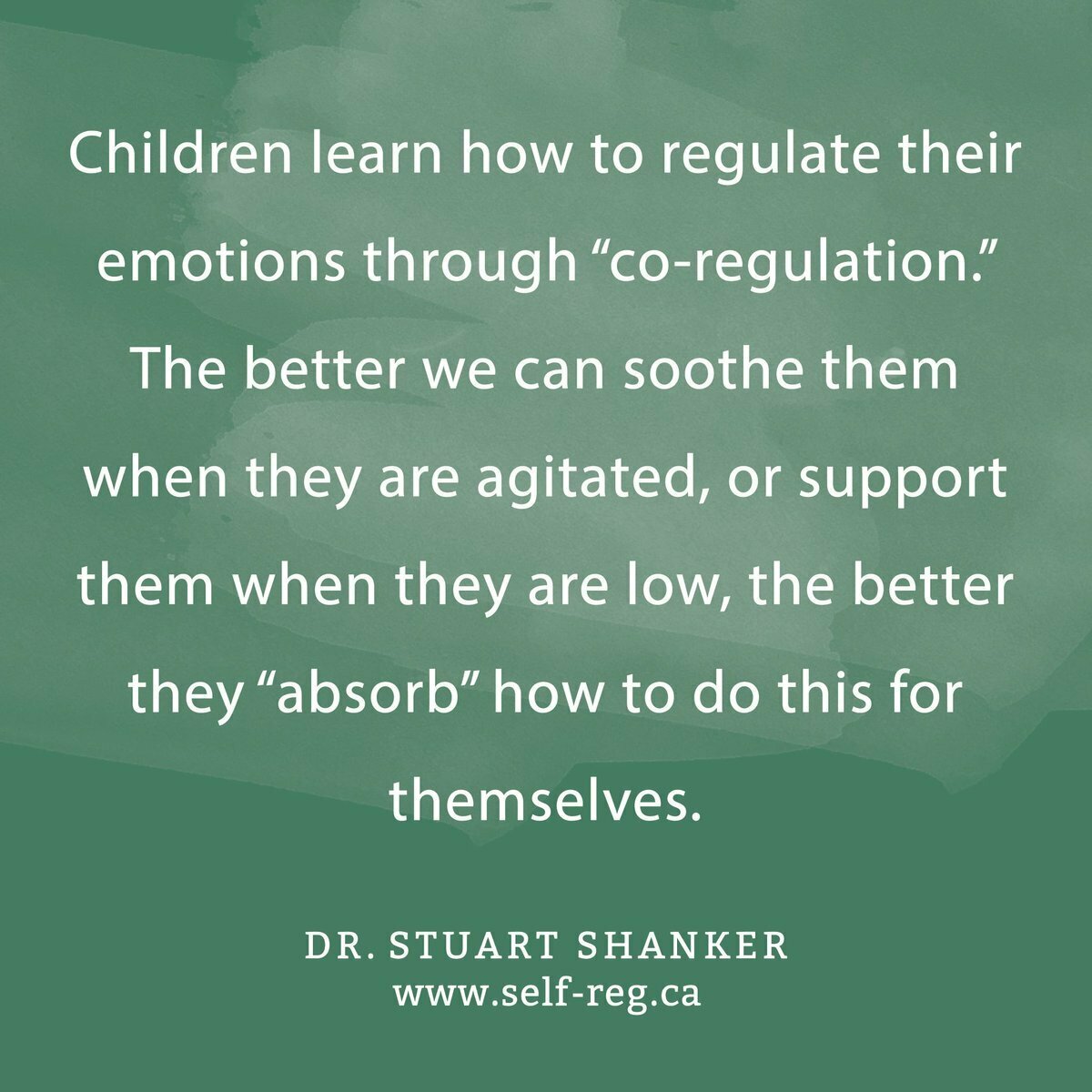
| Co-regulation is defined as warm and responsive interactions that provide the support, coaching, and modeling children need to understand and express their thoughts, feelings, and behaviors.
Co-regulating requires parents and care providers to pay close attention to the cues children send and respond consistently and sensitively over time with the right amount of support.
|
|
|
|
|
|
|
When you think of self regulation as a skill that your child just hasn't learned yet (rather than bad behavior) it changes the tone and type of the feedback you give them.
|
|
|

| Let your child know that all of our emotions are important and relevant, including sadness. On days when your child is experiencing difficult emotions, let them know that these emotions are important, but also that they are only TEMPORARY!
The key is to give your children the space to have their feelings and resist the urge to make the "bad" ones go away. Letting feelings come is the path to letting them go.
|
|
|
|
Support your child to identify and express their feelings so they feel heard. Feelings usually settle down when they‘ve been verbally acknowledged. When feelings are minimized or dismissed, they will often be expressed in unhealthy ways.
|
| |
|
|
|
|
This short clip from Inside Out demonstrates the importance of feeling an emotion so you can let it go. Sometimes, to let go of something, you need to let the tears come.
|
| |
|
Behind every behaviour is a feeling. Children communicate with behaviour more often than they communicate with words. The part of the brain that analyzes feelings and puts them into words has not developed yet, so you can't expect that kind of maturity from a young child or even adolescent.
As a parent you can do the analyzing for your child by letting them know that you understand where their behaviour is coming from. If you‘re not sure, simply guess and your child will let you know if you are close.
|
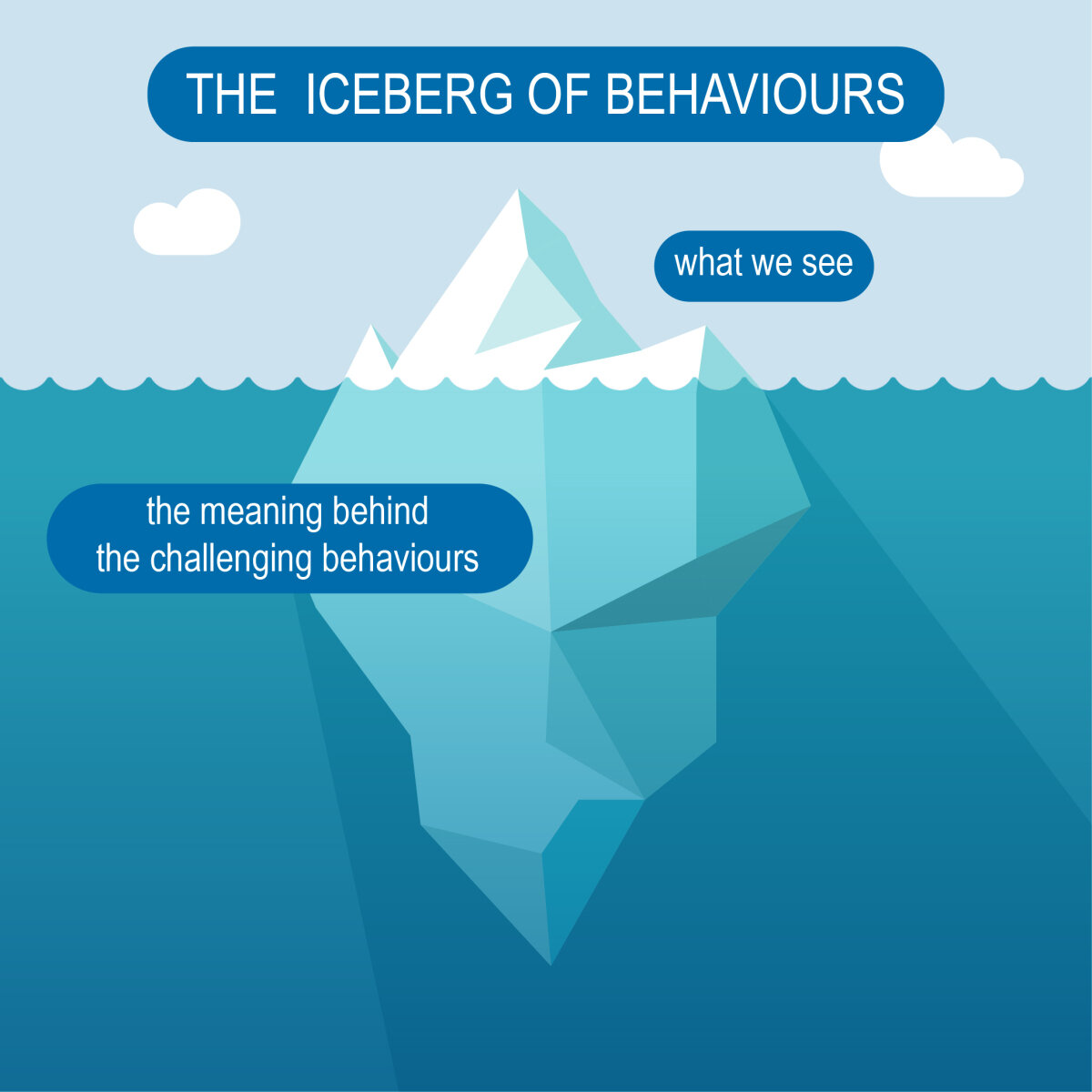
|
|
|
|
Once you know what feeling is driving the behaviour you can help them find other ways to express it.
|
| |
|
|
|
Help kids become self-reflective. When parents approach inappropriate behavior calmly and give kids time, they can learn to choose better ways to respond to the situation. The feedback kids need is non-judgmental and non-emotional: what went wrong, and why, and how they can fix it next time.
|
Offer a do-over. No matter how calm and self reflective you try to be here will be times when you and/or your kids will have an angry outburst. When this happens all family members should be offered a chance to have a do-over. Anyone in the family is allowed to say, ’That came out really mean. I‘m going to take a do-over. Here‘s what I wanted to say.‘”
|
|
|
Emo-tainment! Reading books with your child is a great way to approach talking about emotions and behavior. You can use the characters to start a conversation about feelings and motivation. Ask your child, “What do you think he‘s feeling?” “Why do you think he did that?” Age appropriate books offer opportunities for discussing feelings and increasing your child's emotional vocabulary
|
|
|
 |
With older children you can use movies or TV shows to start the conversation. Ask your child why a character was angry, frustrated or sad. This helps kids get used to talking about why people behave the way they do. Talking about fictional characters makes it that much easier for kids to be emotionally confident when talking about their own emotions.
|
|
|

Tune into cues. Sometimes feelings can be hard to identify. Tune into your child‘s feelings by looking at their body language, listening to what they‘re saying and observing their behaviour. Figuring out what they feel and why means you can help them identify, express and manage those feelings better.
| 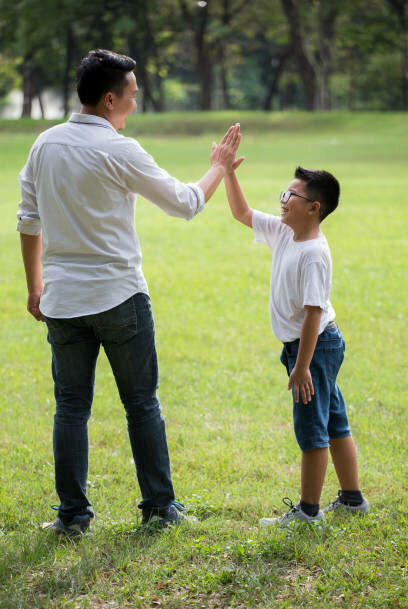
Encourage with praise. Praise your child when they talk about their feelings or express them in an appropriate way. Not only does it show that feelings are normal and it‘s ok to talk about them, it reinforces the behaviour so they are likely to repeat it.
| 
Consider mindfulness as a technique to help regulate your child. Mindfulness has been shown to improve attention and reduce stress as well as increase one's ability to regulate emotions.
Click here for more information on mindfulness techniques.
|
|
|
|
|
 |
In addition to mindfulness there are many other practices you may choose to help your child regulate their emotions. Following are some techniques gathered from around the globe.
|
|
|
Understand And Manage Emotions With Finger Holds
This practice originated from Indonesian cultures to release and balance the experience of strong emotions. The exercise consists of holding each finger for a few minutes.
Thumb is for grief, tears and emotional pain

|
|
|
|
|
December has arrived, and with it comes an myriad of cultural celebrations! Whatever holiday your family may celebrate it is likely you are struggling to make plans appropriate for the pandemic. How do we deal with more disappointment and frustration — and help our kids do the same?
|
|
|
Don’t wait to make plans. Discussions about this year’s holidays can be painful, but making plans ahead of time will make the days themselves much less stressful. If you wait until the last minute to figure out plans, kids won’t have time to deal with any confusion or disappointment, which will make the holidays that much more stressful for the whole family.
|
|
|

Discuss rules in advance.
Differences of opinion about how to gather safely may be a huge source of stress this holiday season. Where do we stand on hugging? What are our rules about masks? Avoid conflict by making clear agreements ahead of time with everyone who’s going to be present.
| 
Start new traditions.
If you’re not going to be able to celebrate in the way your family is accustomed to, be proactive and find new activities to make the pandemic holidays special. Give the whole family a voice in planning some of the activities.
| 
It's okay to express disappointment.
If traditions are looking different remember it is important to acknowledge feelings and validate disappointment. Keep your kids involved in the conversation as you model disappointment as well as hopeful optimism for the future.
|
|
|

| Stop, Breathe, & Think Kids App
Stop, Breathe, & Think Kids has a variety of free meditations for children. To begin, the child evaluates themselves using emojis. Each emoji has emotions attached to it. . After selecting up to three emotions (such as calm, cozy, or wild), the player “launches”. The app then provides several different meditations that are appropriate according to the user‘s self-evaluation.
|
|
|
The app helps kids practice and improve their self-awareness (understanding our own actions, thoughts and feelings) and self-control (managing our actions, feelings and behaviors).
|
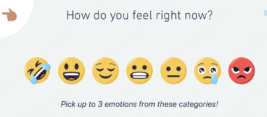 |
|
|
|
|
|
|
|
|
|
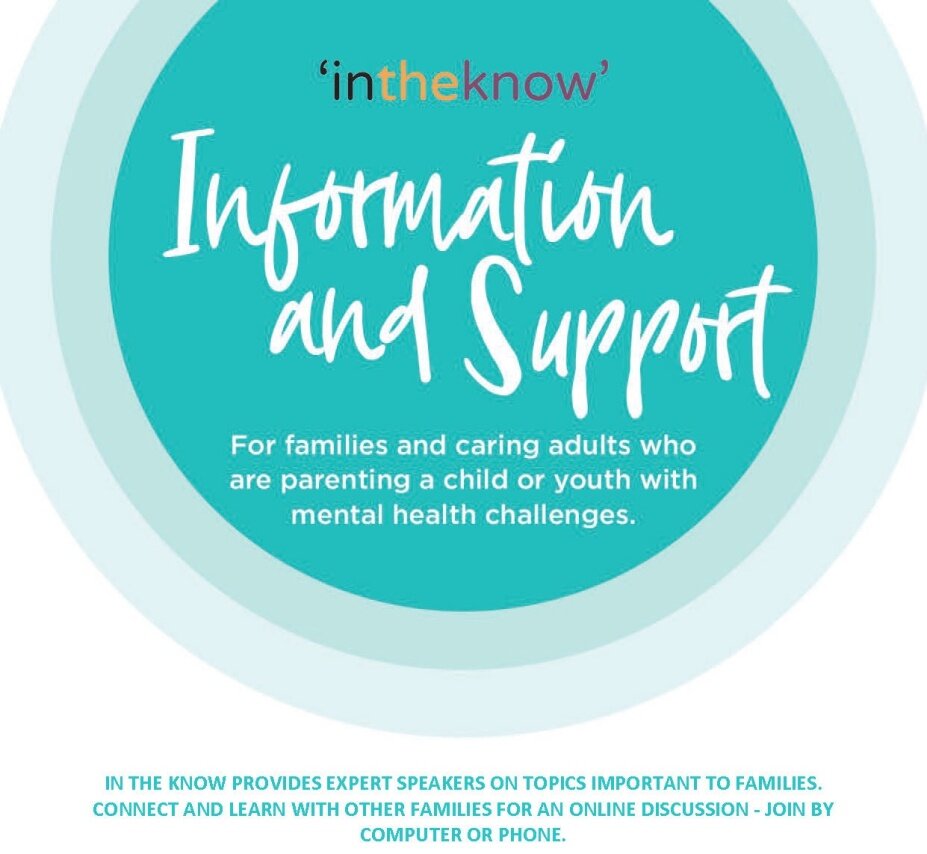
| FamilySmart DOING THE HOLIDAYS DIFFERENTLY If you have a child or youth with mental health challenges, you may already adapt things around the holiday season. Many of us do. As the 2020 Holiday Season may be one for the record books, let‘s get together and talk about what that might look like for families like ours. We‘ve also gathered ideas from our team and can share great tips for how we can increase connections, reduce holiday stress and find a little more breathing space during this important time. Date: Dec 2 @ 4:30pm

|
| |
|
|
|